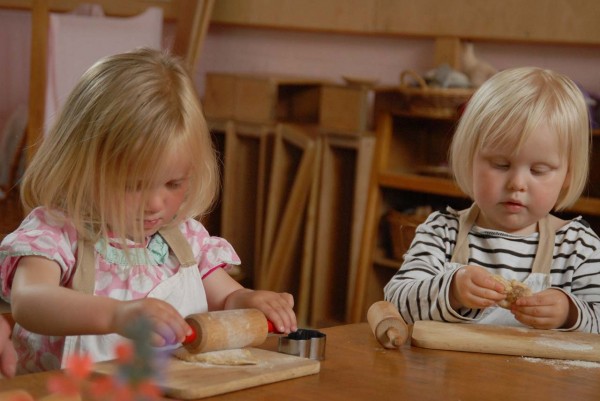Steiner Waldorf Education – an overview
Steiner Waldorf Education seeks to guide and support children through the natural phases of development, encouraging them to grow into resourceful, warm-hearted, flexible and practical adults. This education recognises childhood as a journey that needs to leave time for the unfolding of the three soul forces – thinking, feeling and willing – in the maturing child.
In our schools we aim to bring joy into the learning process, allowing an artistic element to flow into all lessons, and with a healthy balance of intellectual, artistic and practical work throughout the day.
There are now over 1200 Steiner Waldorf schools in 60 countries, plus 2000 Early Years settings and 60 Teacher Trainings worldwide. It is the fastest growing established alternative to main stream education in the world. These schools are co-educational and foster attitudes of tolerance and co-operation between children of all abilities, races and religions.
The International Waldorf curriculum is uniquely designed to meet the developing emotional and intellectual needs of children. It works through the values of goodness, beauty and truth, encouraging children to seek these within themselves and in the world around, creating a warm and encouraging environment in which children can grow and learn.
The sword-wielder, the dragon-confronter, gathering up the true aims, shielding the purposes of our hearts He watches over the conflicts…
Read MoreSee how our education systems can nurture creativity with fascinating insights from Sir Ken Robinson.
Read MoreChildren at an international summer school in the New Forest have gained the top mark in an independent performing arts…
Read MoreThe Ringwood Waldorf School in Ringwood, Hampshire welcomed visitors and families to find out more about their alternative ‘Steiner’ approach to education last week as part of their May open day.
Read MoreWe were all marvellously entertained last Friday and Saturday by Class 8’s most amazing and thoroughly delightful presentation of Jules Verne’s ‘Around the World in 80 Days’ – based on a script which allowed for many original changes by the class.
Read More
